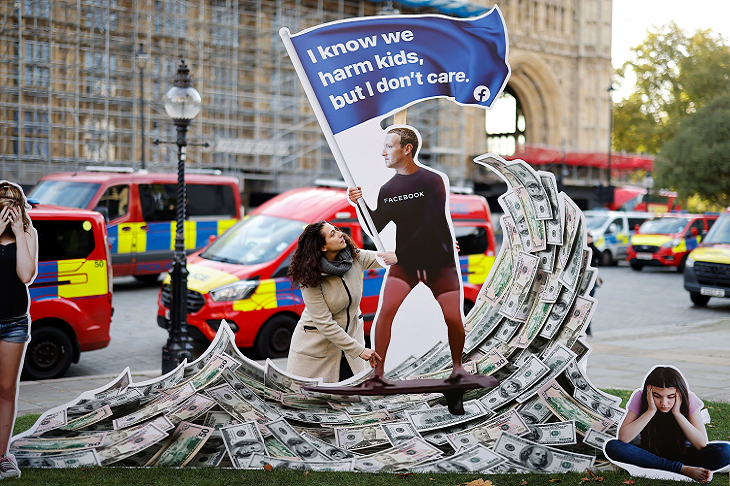Editor’s note: this is Niamh Finneran Loader’s final piece, published after her tragic death over the weekend. A tribute from Mark Burgess will follow.
‘D’you know Mr Methane?’
‘What?’
‘Mr Methane.’
‘I heard what you said, but still … what?’
‘Oh my God, how can you not know Mr Methane? What about Mr Beast?’
There you are, that’s a snippet from a conversation I had with a fourteen-year-old last weekend. I could tell you about the eye rolls and the incredulity (expressed by both parties), but I think you get the gist. Not wanting to appear completely close-minded I listened to the explanation. Mr Methane’s name says it all. (Don’t Google it if you value your sanity and the integrity of your browsing history.) Mr Methane farts in time to music. And records it. And uploads it. And kids (who subscribe) actually take time out of their day to watch this self-described Professional Flatulist.
‘Mr Beast’ aka Jimmy Donaldson is, as it turns out, far more prolific. He’s been creating content for YouTube since the age of thirteen. He began his ‘career’ filming himself playing Minecraft and now he’s a multi-millionaire.
To clarify, I’m not trying to say that people becoming famous for ridiculous reasons is anything new. Arguably, Mr Beast is just the modern brand of comedian or actor, and YouTube the means of access. He’s nothing novel.
In singling out these men I’m not disputing their entertainment ‘value’ per se. I mean, I could bring up the mental health concerns and the social consequences for those with celebrity obsessions. I could reminisce about an era where children wanted to be firefighters and police officers rather than ‘instafamous’. A time when people wanted to be known for having real talents and were motivated to pursue careers underpinned by community service. But those are tired topics. There have always been celebrities and there have always been mental health issues. Let’s be honest, children still want to be police officers and firefighters nowadays. Furthermore, plenty of people aspired to be princesses or dogs before the age of social media. YouTube and TikTok aren’t responsible for children with unrealistic career goals.
What is concerning, however, are the ways in which ‘influencers’ drive traffic online. For Facebook, Twitter, or TikTok the influencer trend is a goldmine. As we’re all well aware, these companies make their money harvesting user data and selling it to advertisers. It’s now a tired phrase, but worth trotting out: ‘If the product is free, then you are the product.’ We’ve heard the warnings, but how many of us bother to consider what our preferences and profiles are actually being used for beyond targeted advertising? It’s one thing for a platform to sell user data to McDonald’s, and for burger ads to follow us around the web. Fine. It’s another thing entirely to remember that McDonald’s is probably the most benign company benefitting from our troves of data. TikTok, for instance, trains artificial intelligence with its users’ faces. Imagine… Facial recognition technology put to use by highly questionable regimes for highly questionable purposes. Think social credit, think silencing protests, think Uyghurs, think Hong Kong. Simply put, informed consent died a long time ago. And whilst AI can be hugely valuable and positive, we currently don’t control which companies receive our data. Neither are we aware of how their products are used.
So that’s one thing. Australia needs a suite of comprehensive data protection laws. These should force companies to be transparent about how they’re using the information they collect. In reality, we need a right to opt-out altogether, or at least to seriously limit the amount of information companies are permitted to collect. Frankly, we need laws to remind these businesses, and ourselves, that privacy and autonomy should be assumed. Data collection should be the exception, not the norm. In Australia data privacy laws are woefully inadequate. At least the European Union, whatever else you might criticise it for, has its General Data Protection Law.
What else? Well, let’s return to the naïve fourteen-year-old who watches ‘Mr Beast’, or aspires to farting tunefully for a living. If full-grown adults can’t understand the implications of data harvesting, then how can children? They’re far more likely to click agree to ‘all cookies’ in their desperation to watch mindless content, or post mindless content, online. Consider it for a second. Child pornography is illegal, and yet social media owns millions of pictures and videos of underage users in swimsuits. They are fully entitled to sell these. We restrict companies’ rights to run ads at certain times of day, and yet TikTok can train AI with footage of minors? There’s a reason Ireland is currently leading the charge in a court case on children’s data privacy.
So sure, children are going to continue watching people fart in time to Another One Bites The Dust. That can’t be helped. They’re still going to aspire to Instafame or YouTube celebrity. We can’t control the fact that one mans’ flatulence drives children’s content online. We can, however, limit companies’ rights to use our personalities and faces. Children definitely shouldn’t be tools for a more effective capitalism, or training material for the AI of dystopic governments.
Got something to add? Join the discussion and comment below.
Get 10 issues for just $10
Subscribe to The Spectator Australia today for the next 10 magazine issues, plus full online access, for just $10.


























Comments
Don't miss out
Join the conversation with other Spectator Australia readers. Subscribe to leave a comment.
SUBSCRIBEAlready a subscriber? Log in